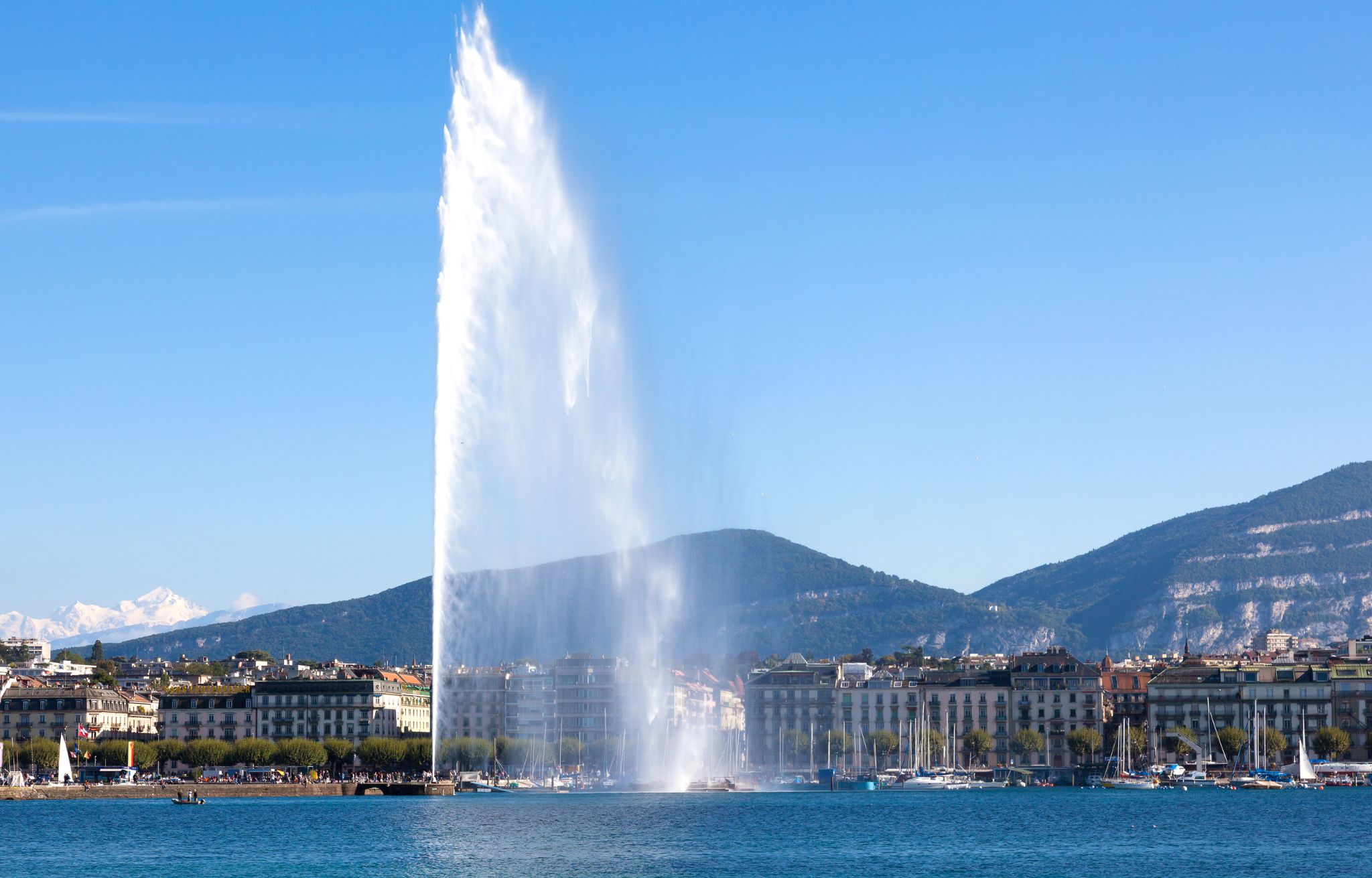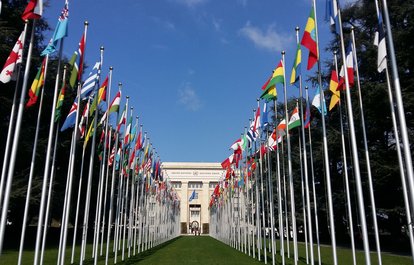Diplomacy in Geneva
Talks with Iran: Can Geneva bring diplomacy back?

Geneva, the city of diplomacy.
© Samuel BorgesBack to diplomacy. One could almost think that this important instrument for restoring peace and security has been forgotten - given the current wars and armed conflicts. Geneva in particular has a long tradition of such international efforts.
So back to Geneva
To this day, the city is a globally accepted venue for international dialog. Not all diplomatic efforts in the past have led to serious political breakthroughs or even lasting peace. Two of the more successful ones are briefly recalled here. Ronald Reagan and Mikhail Gorbachev negotiated here for the first time in 1985: a beginning. This was followed by further talks in a calm atmosphere, the outcome of which marked a turning point in the Cold War. The Geneva Conference on Yugoslavia in 1992 finally led to the signing of the Dayton Peace Agreement in 1995. But Dayton also shows that international treaties and agreements are no guarantee of lasting compliance with international standards and national responsibility if the political will to implement them is lacking.
Persuasion is needed to steer political will towards responsible action. As a quiet and safe location, Geneva offers the best starting point for multilateral exchange. The risk of escalation in the current warlike situation between Iran and Israel is obvious. Ultimately, the reaction of the American president or the possible intervention of other states remains unpredictable.
EU High Representative for Foreign Affairs Kaja Kallas and her colleagues Johann Wadephul, David Lanny and Jean-Noël Barrot want to de-escalate the situation in an exchange with the Iranian Foreign Minister Abbas Araghchi and prevent further suffering of innocent civilians in the region. A solution to the conflict requires both Israel and Iran to show a willingness to negotiate and engage in talks. Another place for diplomacy will certainly have to be the International Atomic Energy Agency in Vienna. Because Israel needs certainties that are also recorded on paper. The world needs a return to international humanitarian law and the basic principles of the UN Charter. The people in the affected countries need peace.

European Headquarters of the United Nations, a hotspot of multilateralism.
© konferenzadhsOn the basis of a UN resolution
The talks in Geneva will initially focus primarily on Iran's commitment to the civilian use of its nuclear program. The E3, consisting of Germany, France and the UK, last met with Iran's deputy foreign minister in Geneva in January. The mandate for these talks is anchored in a UN Security Council resolution (Res. 2231) from 2015 - adopted with the participation of the USA, China and Russia. The resolution even gave the participants from E3 and Iran their own name, the Joint Commission (Joint Commission of the JCPoA). It is coordinated by the EU on behalf of the EU High Representative for Foreign Affairs. The UN resolution clearly defines the responsibility for this meeting in Geneva in terms of roles and objectives. Resolution 2231 on diplomatic dialogue with Iran will expire on October 18, 2025. It is time to renew it.
Today's politicians have a responsibility to the people of Israel and Iran as well as to future generations worldwide. Appropriate language, a calm atmosphere and a diplomatic demeanor are needed to begin the mediation that the world is waiting for. Vulgar vocabulary is not appropriate. The representatives of states once promised to seek other means than war, such as negotiation, mediation, arbitration or legal dispute resolution. This is how it was included in the Charter of the United Nations. The representatives of states once made this commitment. Next week marks the 80th anniversary of the signing of the Charter. It has aged in the meantime. But diplomacy opens the opportunity for a new chapter. Let's hope for successful talks in Geneva.
